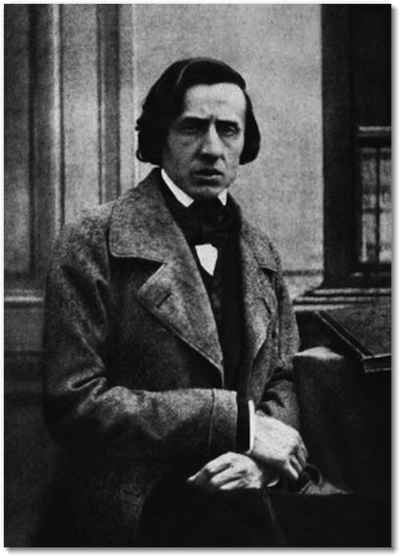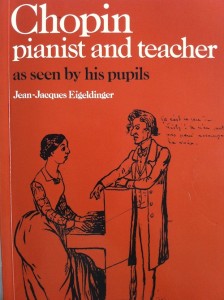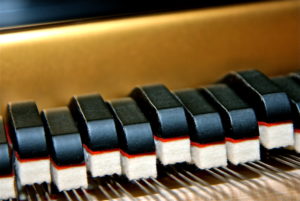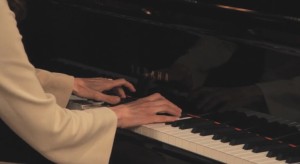Today we remember Frédéric Chopin primarily as a composer, yet he also made his livelihood by teaching adult piano lessons. The number of professionals that he taught during his lifetime amounted to no more than 20. The rest were amateurs with a passion for the piano.
Chopin, who grew up in Warsaw, spent most of his adult life in Paris. Two years after settling there, he rented a luxurious apartment on a tree-shaded avenue. He held lessons in his apartment’s salon, furnished with two Pleyel pianos, one a grand, the other an upright.
At the lesson’s end, students left the lesson fee—a whopping 20 francs, then sufficient to support daily expenses for a bourgeois family—in a sealed envelope on the mantelpiece. While Chopin profited from the occasional concert, teaching provided his main source of income. Teaching the aristocracy underwrote a luxurious lifestyle including his well-appointed apartment, elegant clothing (he favored high, stiff white collars, silk shirts and velvet waistcoats), and conveyance of horse, carriage, and liveried driver.
Students spoke of his fastidiousness to the correct fingering, to linking the notes in legato, and especially to playing with a singing tone. “Don’t listen to other pianists,” he would plead. “Listen to the great singers, then you’ll learn how to phrase.” Chopin loved attending the opera, first during his short time in Vienna, then later in his adopted home of Paris. Harold C. Schonberg, author of The Great Composers, noted how Chopin borrowed the Nocturne’s form from John Field but then refined the melodies based on the “long-breathed cantilenas that can be found in Italian bel canto opera.”
I have often marveled how wonderful it must have been for those ardent adult amateurs who lived in Paris during Chopin’s time and who had the means and the talent to seek instruction with him. What often stays with me is the advice he conveyed to one of his favorite students, Emile von Gretsch, a member of high society who also happened to be a gifted and hardworking amateur pianist.
“It seems to me that you don’t dare to express yourself as you feel,” Chopin once told her in a lesson. “Be bolder, let yourself go more. Imagine you’re at the Conservatoire, listening to the most beautiful performance in the world. Make yourself want to hear it, and then you’ll hear yourself playing it right here. . . . I see that timidity and lack of self-confidence form a kind of armor around you, but through this armor I perceive something else that you don’t always dare to express, and so you deprive us all. . . . Be bold and confident in your own powers and strength.”
The advice seems just as relevant to students of adult piano lessons almost 200 years later: Be bold and confident in your own powers and strength.





0 Comments